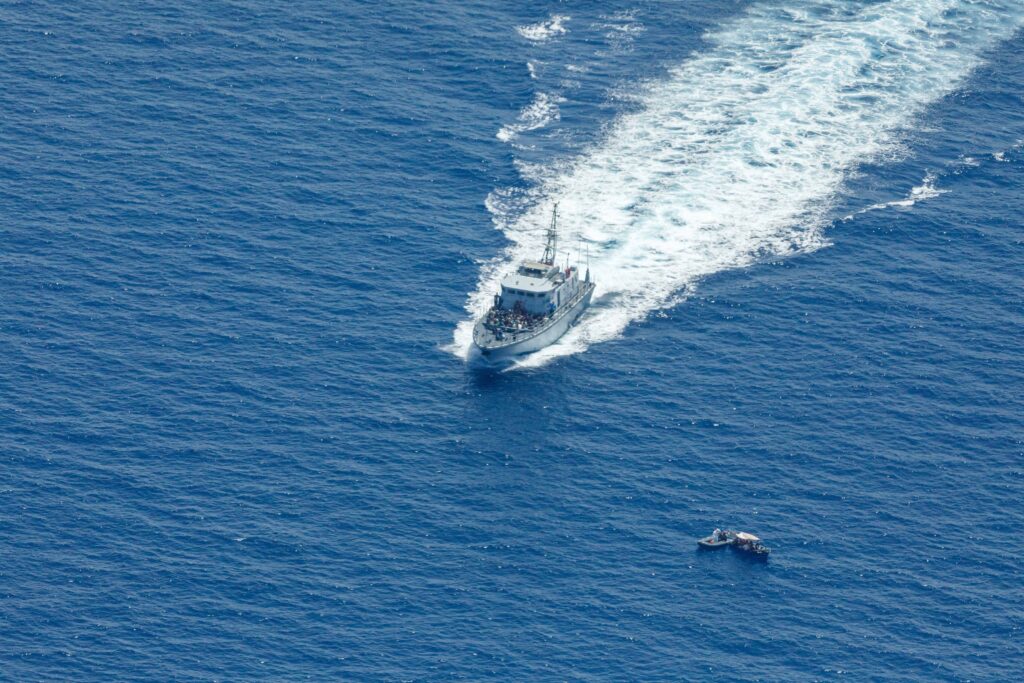The use by the EU’s border agency, Frontex, of aerial surveillance to enable the Libyan Coast Guard to intercept migrant boats, knowing that migrants and asylum seekers will face systematic and widespread abuse when forcibly returned to Libya, makes Frontex complicit in the abuse, Human Rights Watch and Border Forensics said in a multimedia research feature released today.
Using data analysis and research testimony, Human Rights Watch and Border Forensics released an interactive web feature “Airborne Complicity: Frontex Aerial Surveillance Enables Abuse” which documents “the role that Frontex – chartered aircraft – several planes and a drone – play in detecting migrants’ boats in the central Mediterranean and their subsequent interception by Libyan forces,” according to a statement by Human Rights Watch.
The aircraft, operated by private companies, transmit video feeds and other information to a situation center in Frontex headquarters in Warsaw, where operational decisions are taken about when and whom to alert about migrants’ boats.
“While Frontex argues that aerial surveillance saves lives, the evidence gathered by Human Rights Watch and Border Forensics demonstrates it is in service of interceptions by Libyan forces, rather than rescue by the civilian rescue organizations or merchant ships that also operate in the area,” said the non-governmental organization.
“By alerting Libyan authorities about boats carrying migrants, knowing those migrants will be returned to atrocious treatment, and despite having other options, Frontex is complicit in the abuse,” said Judith Sunderland, associate Europe and Central Asia director at Human Rights Watch. “Frontex’s rhetoric around saving lives remains tragically empty as long as the border agency doesn’t use the technology and information at its disposal to ensure that people are rescued promptly and can disembark at safe ports.”
“The analysis of available data supports the conclusion that the EU border agency’s approach is designed not to rescue people in distress but to prevent them from reaching EU territory,” the organizations said.
“There is a moderate and statistically significant correlation between its asset flights and the number of interceptions performed by the Libyan Coast Guard,” added Human Rights Watch. “On days when the assets fly more hours over its area of operation, the Libyan Coast Guard tends to intercept more vessels.”
Human Rights Watch called on the EU to “fundamentally reorient its migration policy to enable safe and legal pathways and reset its activities in the central Mediterranean and cooperation with Libyan authorities to make sure people are not returned to places where they would face the risk of abuse, lack of access to international protection, and inhuman and degrading conditions of detention.”
EU: Frontex Complicit in Abuse in Libya https://t.co/OCLUnvi55p
— Human Rights Watch (@hrw) December 12, 2022
